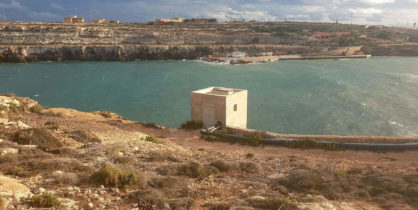Water Management in Cyprus
The island’s ongoing struggle to provide enough water for its citizens.
Cyprus lies at the crossroads of three continents; Europe, Asia, and Africa, a mix of cultures and civilizations with a common Mediterranean essence. It ranks as the third-largest and most populated Mediterranean island with 1.2 million inhabitants.
The island, characterized by the fragmentation of the Turkish invasion in 1974, is partitioned in two; the southern half remains under the control of the Government of the Republic of Cyprus whereas the northern part is under the Turkish-Cypriot Administration, accounting for about 37% of the island’s territory.
The island is classified as ‘water poor’. Water scarcity has always caused a serious problem to society, the environment, and Cypriot industries. In May 2022, REVOLVE traveled to Cyprus for the WATER-MINING project to investigate the human dimension of the water situation on the island.
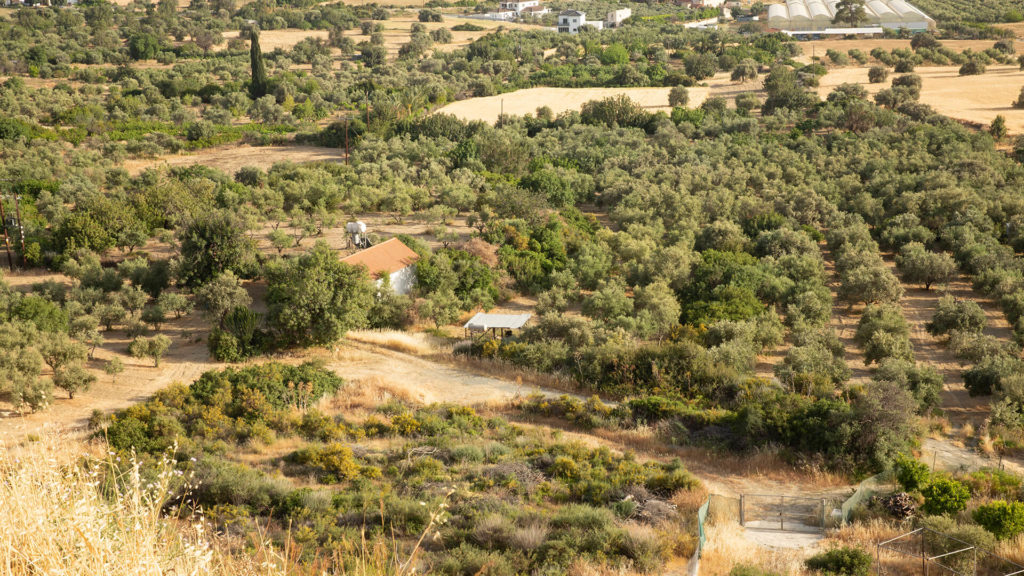
REVOLVE interviewed different people during the trip to understand their connection to water. Children showed curiosity and sensitivity towards water uses, speaking their minds on water availability. Some mentioned that “water is used for plenty of activities like laundry, dishes, watering plants, and for showering or swimming”, and others demonstrated that they are aware that in their country there are “machines that remove the salt and mix freshwater so Cypriots can drink.”
One man opened his door to REVOLVE and shared his journey as a farmer on the island back in 1953 and expressed how much things have changed since then. His message was clear: “’Please do not waste water and be very careful with its use.”
In Cyprus, the agricultural sector is the country’s largest water consumer, accounting for 69% of overall water usage. Concretely, irrigated agriculture in semi-arid areas requires a lot of water, which creates a more challenging situation for the country.
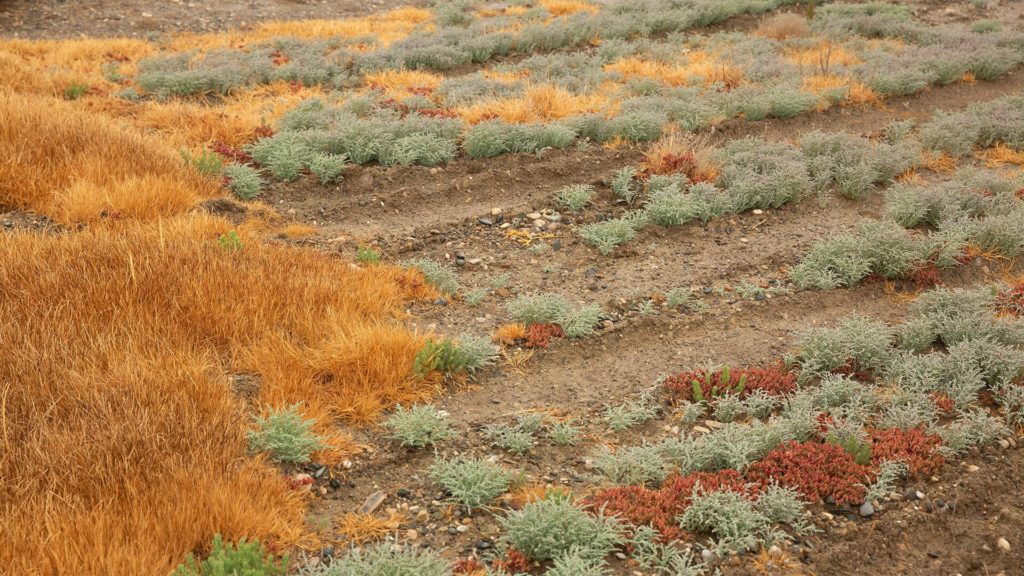
Until the 1970s, groundwater was Cyprus’ primary source of agricultural and drinking water but, as a result of over-pumping, practically all aquifers have been depleted considerably. In the Mediterranean, island states also devote a significant portion of their total water supply to tourism, and Cyprus is not an exception.
The country receives almost 2 million tourists every year, which ultimately represents 16.9% of the total urban water use. The lowest water consumption of a European citizen per day is around 105 liters, but this number is multiplied by four during a tourist’s stay in a Mediterranean hotel. This is hardly surprising as most tourists visit the region during the hot and dry summer months and consume a lot of fresh water with the use of swimming pools, water parks and golf courses coinciding with when water resources are already scarce.
Mrs. Panayiota Hadjigeorgiou, Director at the Water Development Department, explained that “water demand in Cyprus rises from year to year, especially in the domestic sector, and currently the administration uses the agricultural sector as a regulating tool for maintaining the demand for all users, but this tool is not working very well due to the high rise of demand.”
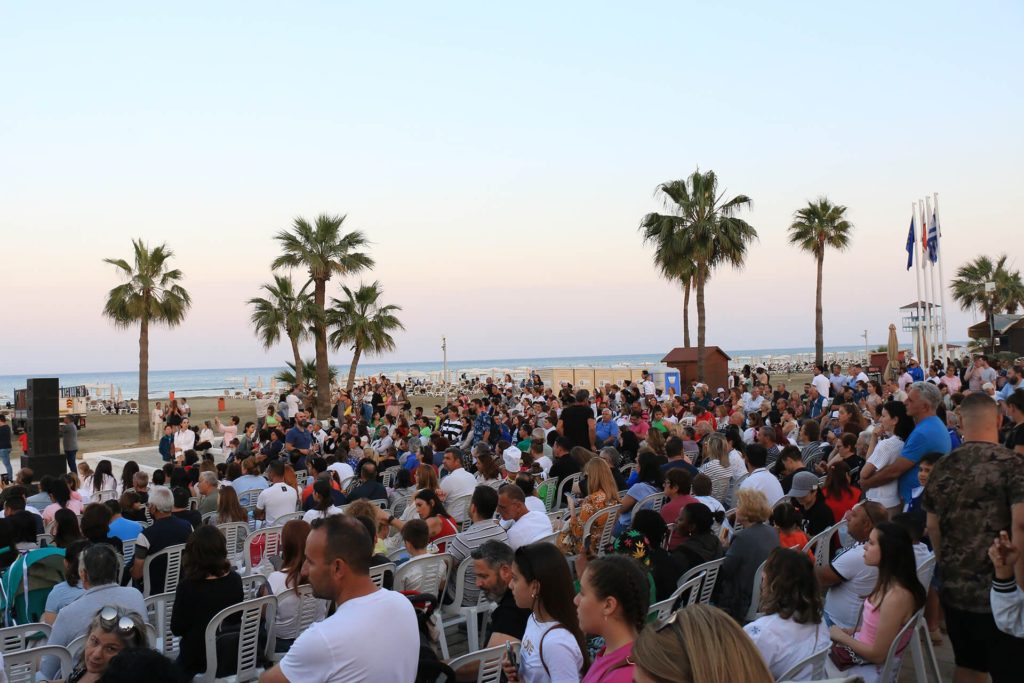
On the other hand, a farmer from Kampia, a small village located in the Nicosia District of Cyprus, expresses concern that farmers in Cyprus are not allowed to use water from the dams, even if they are located only 300 meters from their farmhouse. As they do not have permission to use the dams, farmers drill for water in the mountains through an energy-intensive and costly process to take the water from 300 meters up to the surface.
Maria Kyriazi, a researcher in the Unit of Environmental Science & Technology at NTUA, shared with REVOLVE that “when there is drought, then agriculture is the one that suffers the most because they are given a limited amount in order to satisfy the demand of the urban and tourist areas.” This bias towards the tourism industry is both causing conflicts between the industries and poses a threat to local residents.
Cyprus’ unique location in the eastern Mediterranean makes it one of the global climate change ‘hotspots’ with particularly high sensitivity to climate altercations and impacts. Cyprus is an island that has the lowest water availability per capita in the Mediterranean and suffers from the highest water stress levels in Europe, and that will be threatened even more by the climate crisis.
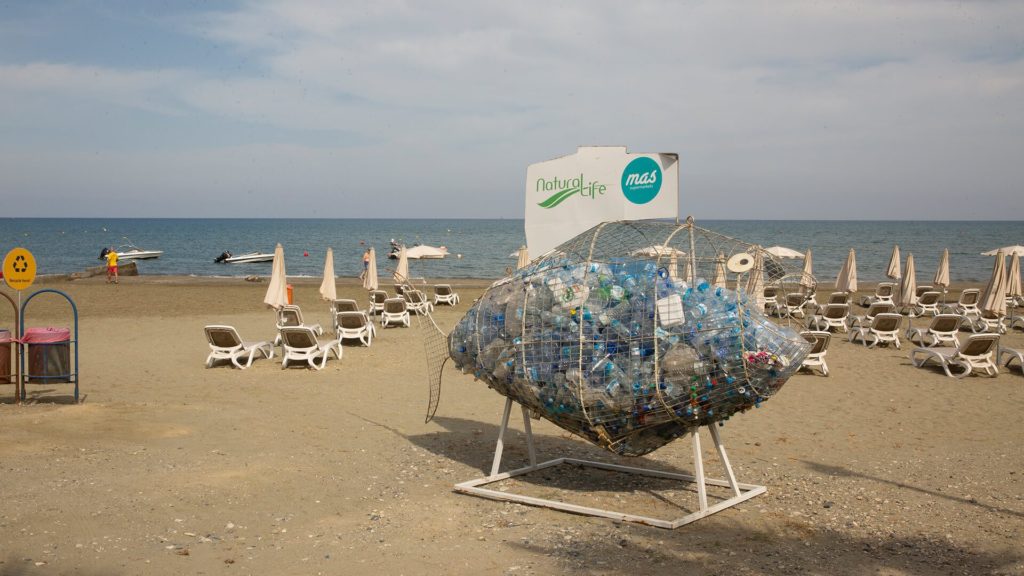
The island does not have large rivers either; on the contrary, there are no significant rivers, and all are short and dry most of the year. Droughts and limited precipitation are also a common problem on the island.
In 2018, water in dams was at the lowest levels since 2008. Projections by PRECIS – a regional climate modeling system designed to generate detailed climate change projections for any area of the globe – suggest that precipitation in Cyprus will decrease by 20% by 2050.
At the same time, population growth, technological and economic development, urbanization, unsustainable tourism and consumption trends, among others, are increasing the demand for water in the country.
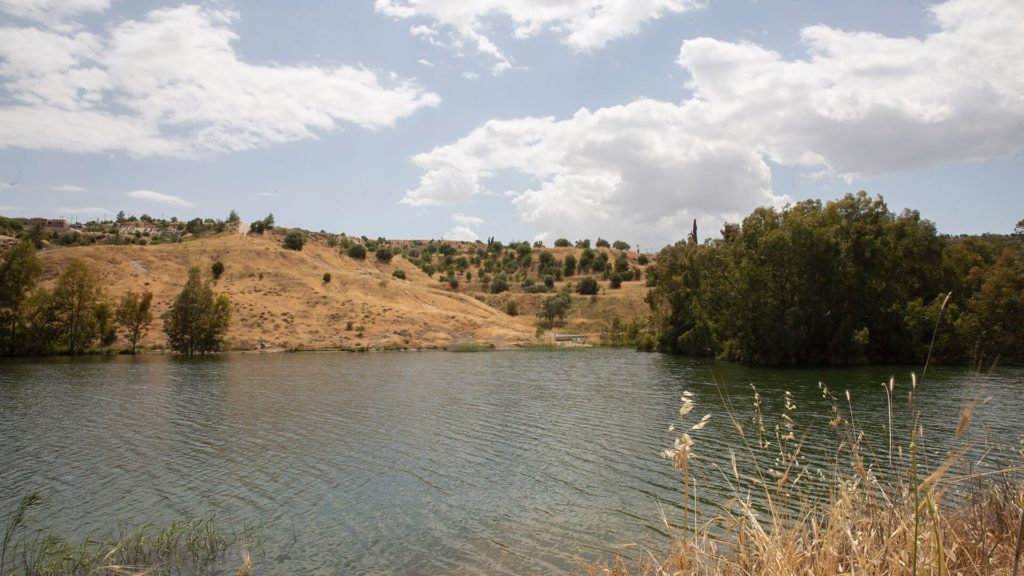
How is water demand met in Cyprus?
Confronted with such environmental and socioeconomic challenges, Cyprus has been implementing a series of plans to satisfy growing water demand. During the late 1960s, a Water Master Plan, which included leakage reduction, improving irrigation efficiency, water pricing, education and awareness campaigns, among others, was implemented with the aim to increase water availability and access. In 1997, two other unconventional sources of water were introduced: the reuse of wastewater and desalination of seawater.
More than half of the recycled water in Cyprus is used for the irrigation of agricultural and livestock crops and green areas, either directly or through the artificial recharge of aquifers, in accordance with the code on good agricultural practice.
During an interview with Panayiota Hadjigeorgiou, Director at the Water Development Department, she argued that the Government implemented extra measures, such as reuse water with tertiary treatment, in order to satisfy the demand of water, especially that of the agricultural sector.
She explained that this was a mandate of the Government of Cyprus, irrespective of European Union directives, and that they bear the cost of this further treatment to incentivize the farmers to use this water without any fear and to use it extensively for irrigation purposes.
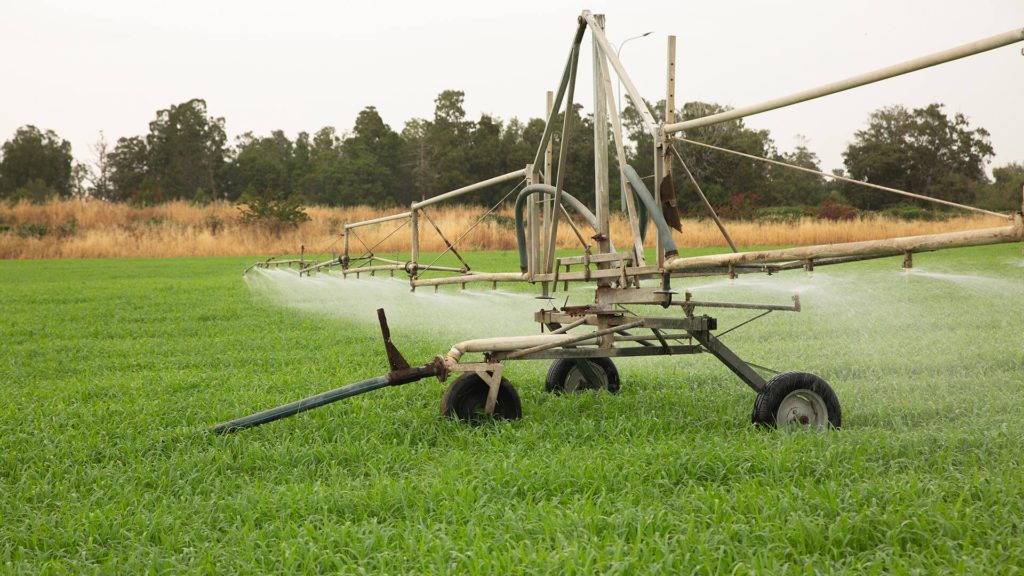
This measure was implemented with the aim of alleviating water demand because if farmers used recycled water, there was an amount of water free for other users such as water treatment. Therefore, the government could use water from the dams for water treatment, so they do not need to go through the desalination water process which is expensive and energy intensive.
The measure was not directly welcomed by the farmers as they did not want to use recycled water. In response the government showed the benefits of the system through a pilot project which was implemented in Limassol for two consecutive years. The Agricultural Research Institute of Cyprus carried out the research analysis and demonstrated that crops irrigated with recycled water increased yearly by 30%.
Moreover, apart from the reuse of wastewater, four desalination plants are now operational in Cyprus: Dhekelia, Limassol (Episkopi), EAC Vassilikos, and Larnaca, with a fifth desalination plant in Paphos planned to begin operations.
Desalination plants are an additional resource for covering drinking water needs but also to support holiday resorts in arid areas. For example, the desalination plants at Dhekelia and Larnaca meet a large portion of the drinking water requirements of the Nicosia, Larnaca, and Free Famagusta districts.
Pilot projects to secure Cypriot’s water: the case of WATER MINING
The WATER-MINING project, an EU-funded initiative, is one of the projects working to provide solutions. It aims to develop energy-efficient technologies for treating wastewater from urban and industrial areas and from desalination, whilst promoting the extraction of valuable products from the residues generated during the process.
One of the project’s case studies is taking place on the Southern coast of Cyprus at the Larnaca Wastewater Management Plant. Here, water is already recovered and used in agriculture, however, the high salinity of the water effluent and its phosphorus concentration pose problems for its reuse and may lead to problems in the soil.
At the plant, they treat the water effluent and provide higher-quality water that can be reused and recovered in the form of valuable products such as sodium chloride and phosphorus. These produce chlorine for water disinfection and fertilizer for agricultural fields respectively. Furthermore, there are ongoing efforts for the installation of solar panels on-site, which can cover a fraction of the wastewater treatment plant’s energy requirements.
REVOLVE visited the premises and discussed the benefits and the impact on the wider Cypriot society with Maria Zachariou, chemical engineering and water expert and Maria Kyriazi project manager of the NTUA team, who explained the WATER MINING pilot project located in Larnaca.
They explained that during the process, the treated water from the Larnaca station is desalinated through three main steps: 1) by removing phosphorus in order to be used as fertilizer for local agriculture, 2) by removing magnesium and calcium and then sodium chlorine and 3) by recovering sodium chlorine to be used in chlorination units or in industries.
Consequently, the water recovered from the process is water with low salt concentration, suitable for irrigating crops that are currently not allowed to be watered by the water the treatment plant is currently recovering.
Maria Kyriazi explained that some of the potential solutions to the water crisis in Cyprus is to integrate recycling water into the existing water cycle to minimize the water demand from the freshwater.
She reinforces the idea that is better to add additional treatment and technologies to the process in order to alleviate the restrictions of using recycled water and to create trust, especially among farmers. If farmers welcome it, this will enable them to irrigate more markable crops which will consequently have a positive impact on the economy.

Desalination plants and water reuse
Even though wastewater treatment plants have been used as an alternative source of water since 1997, they also cause two main problems: greenhouse gas emissions and the marine environmental impact.
Most wastewater treatment plants consume large amounts of energy. In 2018, Cyprus needed roughly 240.9 GWh of electrical energy (which was generated by burning imported fossil fuels, oil, and petroleum products.) to produce 69.6 million cubic meters of desalinated water.
According to Maria Kyriazi, “Cyprus should incorporate renewable energies as the island enjoys a lot of sunshine and using solar energy could help minimize the cost of energy and so, the cost of producing water quality.” Cyprus gets 300 days of sunshine annually but imports 100% of its fossil energy needs.
Furthermore, the organic matter and nutrients found in wastewater treatment facilities have a direct impact on the surrounding aquatic environment.
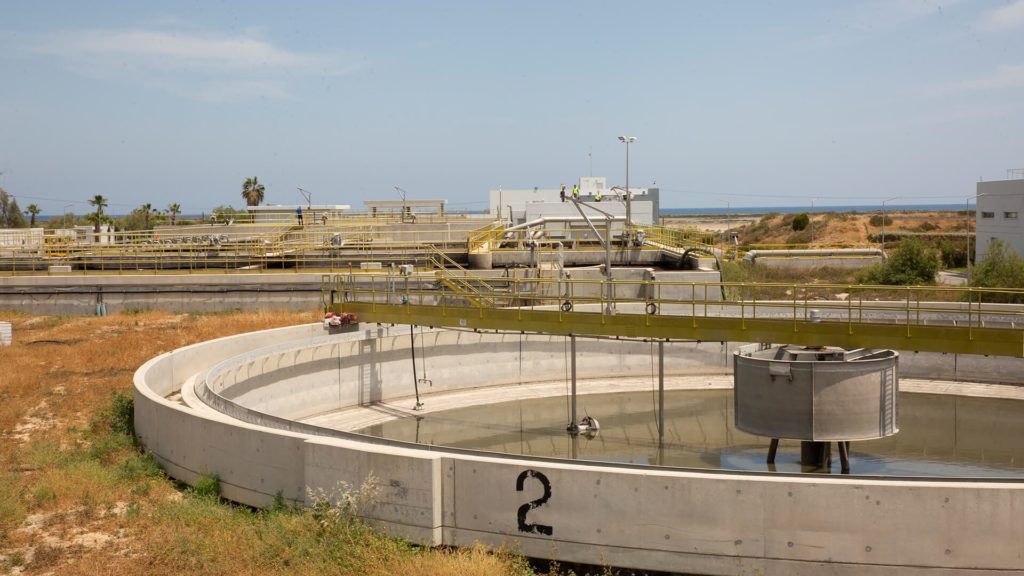
The results obtained in a long-term survey by scientists from the Cyprus government’s fishery department show mostly strong impacts on seagrass (Posidonia sp) meadows, both iconic and important for marine biodiversity and carbon storage.
This, in addition to the fact that in 2008, coinciding with one of the most significant droughts in the country’s history, Cyprus had to import water from Greece, shows that despite the measures taken to provide alternative water sources apart from rainfall (which was the only source of water until 1997), the water crisis in Cyprus has not yet been solved.
Cyprus is still suffering from a chronic shortage of water. Population growth, technological and economic development, urbanization, unsustainable tourism and consumption trends, among others, are increasing the demand for water in the country. All of these coupled with climate change effects poses a threat to the available water resources the island disposes of.
Allocation of water resources to determine who can use water resources, how, when, and where is crucial but also, a complex issue. With the aim to create a sense of water security in the country, the Cypriot government implemented in 1997 two unconventional sources of water: recycled water from wastewater and desalination of seawater.
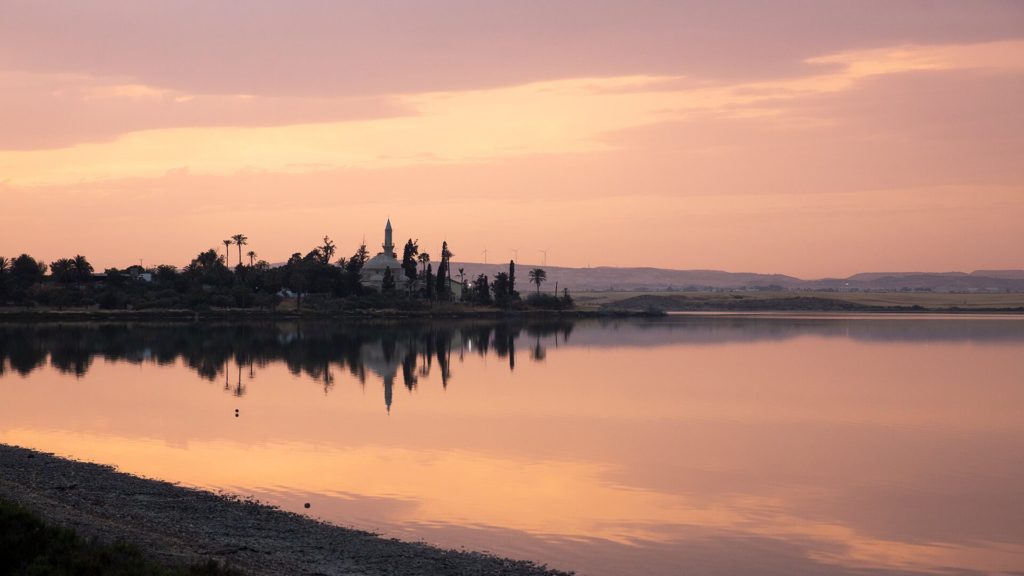
Even though these measures were taken with the objective to satisfy some of the water needs in the country, they have not yielded favorable results for all the different actors of the Cypriot society, as has been the case with the farmers in the agricultural sector.
The Larnaca case study aims to resolve one of the most pressuring challenges Cyprus is facing; supply reused and high-quality water to the agricultural sector (the larger consumer of water in the country) and thus prevent groundwater extraction which might be used, in turn, to supply other sectors (drinking purposes or tourism-related activities, for example).
Even though the pilot project in Larnaca is in its initial stages, the project is aiming to be upscaled, thus creating more favorable conditions for farmers to grow more profitable and added value crops and at the same time, increasing water resources availability.
Nonetheless, this is just one side of the coin. The water crisis in Cyprus can only be resolved if other sectors and practices are being reconsidered and addressed.
